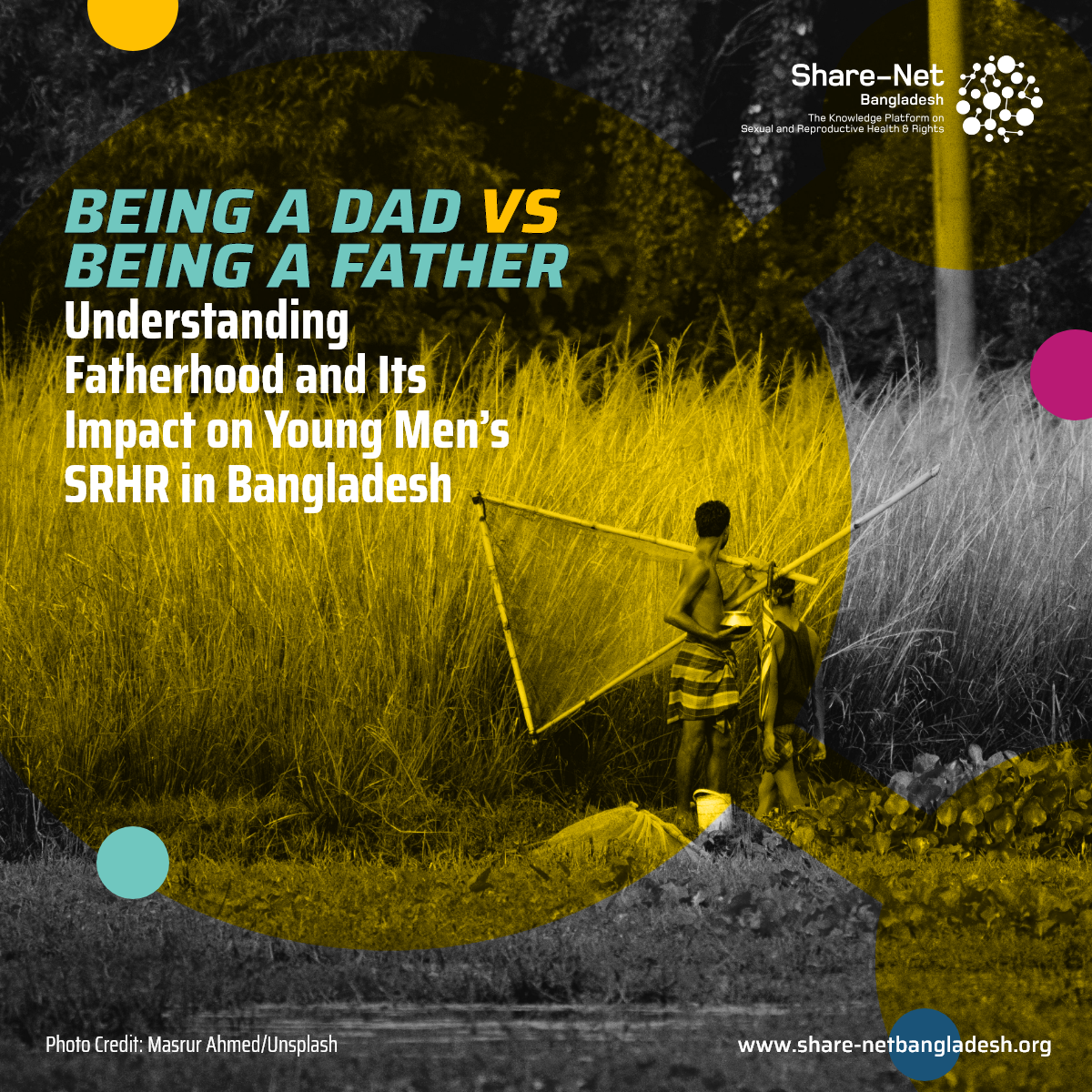Being a Father vs Being a Dad: Understanding Fatherhood and Its Impact on Young Men’s SRHR in Bangladesh
In Bangladesh, fatherhood is often seen as a symbol of authority and responsibility. A recent nationwide study titled “Understanding fatherhood and its implications on the lives of male youth in Bangladesh” sheds light on how young men perceive and experience fatherhood, revealing significant implications for their sexual and reproductive health (SRH).
Traditional Roles and Emerging Perspectives
The study found that many young men view the father as the family’s head, responsible for decision-making and financial support.
One 19-year-old participant stated, “If my father says ‘yes’ to something, we all will agree. After that, if my father says it will not happen, then it will not happen.”
This traditional view emphasises authority and discipline. However, some young men are challenging these norms, advocating for a more approachable and supportive father figure.
A 23-year-old respondent expressed, “My father is not so friendly. I was afraid of him. But I realised by myself that my son needed to share everything with me.”
This shift indicates a growing desire for emotional closeness and open communication within families.
Early Fatherhood and Lack of Preparation
The study revealed that approximately 13% of young married males became fathers before the age of 18, despite the legal marriage age for men being 21 in Bangladesh. While 92% reported that their wives’ first pregnancies were planned, many admitted to lacking knowledge about antenatal and postnatal care.
One 21-year-old taxi driver with a pregnant wife confessed, “I have no plans at this moment. I don’t even feel anything now. I will plan it when my baby comes.”
This lack of preparedness underscores the need for comprehensive SRH education targeting young men.
Knowledge Gaps and SRH Implications
The study highlights that many young men equate family planning solely with having children, neglecting aspects like contraception and maternal health. This limited understanding can lead to inadequate support for their partners during pregnancy and childbirth.
Moreover, the absence of male-focused SRH services contributes to these knowledge gaps. Cultural norms often exclude men from reproductive health discussions, further hindering their involvement.
Moving Forward
Addressing these issues requires integrating male-focused SRH education into existing programmes. Community health workers can play a pivotal role in engaging young men and providing them with the necessary information and support.
By redefining fatherhood to include emotional support and active participation in reproductive health, Bangladesh can foster healthier families and communities.
Download Understanding Fatherhood and Its SRHR Impact
Source: ResearchGate
Photo Credit: Masrur Ahmed/Unsplash

